July 7, 2016 •
Ask the Experts – 2016 Party Conventions
Q. In what ways are my company and I allowed to get involved in the 2016 national party conventions? A. The opportunities for individuals and companies to involve themselves in this year’s party conventions are legion, but caution must be […]
 Q. In what ways are my company and I allowed to get involved in the 2016 national party conventions?
Q. In what ways are my company and I allowed to get involved in the 2016 national party conventions?
A. The opportunities for individuals and companies to involve themselves in this year’s party conventions are legion, but caution must be exercised to avoid running afoul of the many intersecting laws governing your interaction with the delegates and other officials in attendance as well as the committees putting on the conventions.
Convention delegates and those seeking selection as delegates are subject to the federal contribution rules, which means corporations, labor organizations, foreign nationals and businesses, and federal contractors are not permitted to make contributions. However, those permitted to contribute may do so without limits. Delegates who are public officials are subject to the gifts laws governing the office they hold. In other words, federal officials are subject to federal gift laws, state officials are subject to state gift laws, and local officials are subject to any state and local laws applicable to their office.
Individuals and organizations seeking to become involved with the conventions may contribute to the convention host committees. The host committees are nonprofit organizations set up to encourage commerce in and project a favorable image of the convention city. Organizations and individuals may donate money and make in-kind donations to the host committee to defray the costs of the convention, including costs related to promoting the city and welcoming attendees, providing information and samples to attendees, administrative expenses, providing the use of convention facilities, transportation, law enforcement, hotel rooms, accommodations and hospitality for party site selection groups, and for other convention-related facilities and services.
Convention committees are related to the national party organizations and therefore federal campaign finance laws apply. As a result, direct and in-kind contributions using funds from a corporation, labor organization, foreign nations and businesses, and federal contractors are prohibited. Goods and services may be provided to the national committee in the ordinary course of business. Obviously, it’s quite important to distinguish the host committees from the convention committees. Thankfully, both host committees, the Cleveland 2016 Host Committee and the Philadelphia 2016 Host Committee, use the word “host” in their official names.
The national party conventions represent high profile ways to gain exposure both personally and for your organization. This high profile is also why compliance with the rules governing your dealings with committees, delegates, and attendees is so important.
![]()
You can directly submit questions for this feature, and we will select those most appropriate and answer them here. Send your questions to: experts@stateandfed.com.
(We are always available to answer questions from clients that are specific to your needs, and we encourage you to continue to call or e-mail us with questions about your particular company or organization. As always, we will confidentially and directly provide answers or information you need.) Our replies to your questions are not legal advice. Instead, these replies represent our analysis of laws, rules, and regulations.
May 6, 2016 •
Amended MSRB Rule G-20 Effective Today
Today, amendments to a Municipal Securities Rulemaking Board (MSRB) conflict-of-interest rule concerning gifts and gratuities take effect. MSRB Rule G-20 includes restrictions limiting gifts to $100 for municipal advisors giving gifts to employees of entities engaged in municipal securities activities. […]
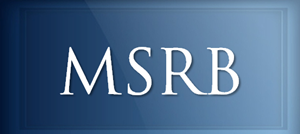 Today, amendments to a Municipal Securities Rulemaking Board (MSRB) conflict-of-interest rule concerning gifts and gratuities take effect. MSRB Rule G-20 includes restrictions limiting gifts to $100 for municipal advisors giving gifts to employees of entities engaged in municipal securities activities. Municipal advisors are also prohibited from receiving reimbursement of entertainment expenses from the proceeds of an offering of municipal securities. The rule is intended to protect against improprieties and conflicts of interest arising when regulated entities give gifts related to the municipal securities or municipal advisory activities of the recipients’ employers.
Today, amendments to a Municipal Securities Rulemaking Board (MSRB) conflict-of-interest rule concerning gifts and gratuities take effect. MSRB Rule G-20 includes restrictions limiting gifts to $100 for municipal advisors giving gifts to employees of entities engaged in municipal securities activities. Municipal advisors are also prohibited from receiving reimbursement of entertainment expenses from the proceeds of an offering of municipal securities. The rule is intended to protect against improprieties and conflicts of interest arising when regulated entities give gifts related to the municipal securities or municipal advisory activities of the recipients’ employers.
April 25, 2016 •
Former Idaho Lawmaker Pushes for Ethics Changes
Former state lawmaker Holli Woodings is leading the campaign for a voter initiative to make large-scale changes to state ethics laws. Changes would include prohibiting political contributions from state contractors as well as cutting contribution limits across the board, banning […]
 Former state lawmaker Holli Woodings is leading the campaign for a voter initiative to make large-scale changes to state ethics laws. Changes would include prohibiting political contributions from state contractors as well as cutting contribution limits across the board, banning gifts of more than $50 from lobbyists, and creating a one-year revolving door provision for public officers.
Former state lawmaker Holli Woodings is leading the campaign for a voter initiative to make large-scale changes to state ethics laws. Changes would include prohibiting political contributions from state contractors as well as cutting contribution limits across the board, banning gifts of more than $50 from lobbyists, and creating a one-year revolving door provision for public officers.
Having collected the required 48,000 signatures in less than two months, Woodings hopes the measure will appear on the November 2016 ballot. Signature collection will continue to be sure enough valid signatures have been gathered before the April 30 deadline.
April 20, 2016 •
Virginia Senate Rejects Governor’s Amendments to Ethics Bills
Meeting today for its annual veto-session, the Virginia General Assembly turned its attention to ethics legislation amendments recommended by Gov. Terry McAuliffe. Lawmakers recently passed identical bills, Senate Bill 692 and House Bill 1362, to roll back some of the […]
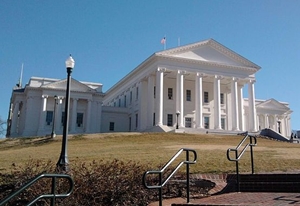 Meeting today for its annual veto-session, the Virginia General Assembly turned its attention to ethics legislation amendments recommended by Gov. Terry McAuliffe. Lawmakers recently passed identical bills, Senate Bill 692 and House Bill 1362, to roll back some of the changes made last year to restrictions on gifts from lobbyists.
Meeting today for its annual veto-session, the Virginia General Assembly turned its attention to ethics legislation amendments recommended by Gov. Terry McAuliffe. Lawmakers recently passed identical bills, Senate Bill 692 and House Bill 1362, to roll back some of the changes made last year to restrictions on gifts from lobbyists.
McAuliffe proposed tightening the limits further and prohibiting bundling of gifts from multiple sources to avoid the threshold. The Senate, today, voted against adopting those proposals. The governor must now choose between signing or vetoing the bills as passed by both houses.
Photo of the Virginia State Capitol by Anderskev in Wikimedia Commons.
April 15, 2016 •
Honolulu Charter Commission Considers Amending Gift Provisions
The Honolulu Charter Commission is considering a proposal today to clarify conflict-of-interest provisions for city employees and officials. Current charter provisions prohibit employees and officials from soliciting or accepting any gift, directly or indirectly, if it can reasonably be inferred […]
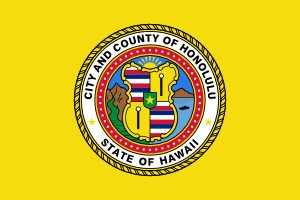 The Honolulu Charter Commission is considering a proposal today to clarify conflict-of-interest provisions for city employees and officials. Current charter provisions prohibit employees and officials from soliciting or accepting any gift, directly or indirectly, if it can reasonably be inferred the gift is intended to influence the officer or employee in the performance of official duties. The new proposal would prohibit only those gifts intended to influence an officer or employee in the performance of official duties and benefiting the official, his or her family, or individuals or organizations with which he or she has a past, present, or future connection.
The Honolulu Charter Commission is considering a proposal today to clarify conflict-of-interest provisions for city employees and officials. Current charter provisions prohibit employees and officials from soliciting or accepting any gift, directly or indirectly, if it can reasonably be inferred the gift is intended to influence the officer or employee in the performance of official duties. The new proposal would prohibit only those gifts intended to influence an officer or employee in the performance of official duties and benefiting the official, his or her family, or individuals or organizations with which he or she has a past, present, or future connection.
Proponents argue the proposal creates a clear standard of conduct, while opponents claim the changes would make it more difficult to enforce gift restrictions in the future. It is inherently difficult to prove the intent behind a gift or the existence of a connection with the recipient. The proposal, therefore, will likely result in individuals, namely lobbyists, avoiding penalties. Interestingly enough, several commission members are current or former lobbyists, or work for organizations employing lobbyists.
March 22, 2016 •
Pennsylvania Governor Advocates for Gift Ban for Legislators
Gov. Tom Wolf is pushing to extend the range of the gift ban he imposed on executive branch employees after taking office. His plan is to make his executive order a permanent, statutory prohibition and create a similar restriction on […]
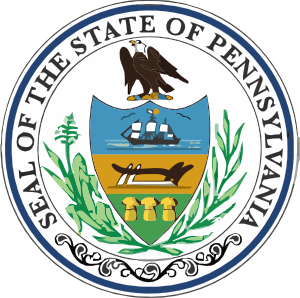 Gov. Tom Wolf is pushing to extend the range of the gift ban he imposed on executive branch employees after taking office. His plan is to make his executive order a permanent, statutory prohibition and create a similar restriction on gifts to legislators.
Gov. Tom Wolf is pushing to extend the range of the gift ban he imposed on executive branch employees after taking office. His plan is to make his executive order a permanent, statutory prohibition and create a similar restriction on gifts to legislators.
While the reception he has received from Democratic lawmakers has been positive, Republicans, who control both houses of the General Assembly, are less eager to make a change. Gov. Wolf has stated he would prefer a complete ban, but is willing to work with legislators on a compromise. With ongoing budget issues, however, ethics reform appears to be taking a back seat for the time being.
January 7, 2016 •
Columbus Mayor Proposes New Lobbying and Campaign Finance Ordinances
Columbus Mayor Andrew Ginther has proposed three new ordinances providing for an increase in lobbying oversight and gift disclosure, additional campaign finance disclosure, and the hiring of an inspector general. Columbus City Council is expected to hold a public hearing […]
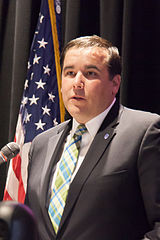 Columbus Mayor Andrew Ginther has proposed three new ordinances providing for an increase in lobbying oversight and gift disclosure, additional campaign finance disclosure, and the hiring of an inspector general. Columbus City Council is expected to hold a public hearing on the proposals in the coming weeks and to vote on them by late February.
Columbus Mayor Andrew Ginther has proposed three new ordinances providing for an increase in lobbying oversight and gift disclosure, additional campaign finance disclosure, and the hiring of an inspector general. Columbus City Council is expected to hold a public hearing on the proposals in the coming weeks and to vote on them by late February.
With the lobbying proposal, Ginther wants the city to establish a new lobbyist registry to track the activity of lobbyist vendors seeking contracts with the city. Additionally, lobbyists would be required to disclose expenditures made on elected officials and department directors.
Photo of Mayor Ginther by David Paul on Wikimedia Commons.
December 17, 2015 •
California FPPC Adopts Amendment to Gift Regulation
On December 17, 2015, the Fair Political Practices Commission amended its regulations related to agency provided tickets or passes. Currently, tickets and passes an agency provides to agency officials for entertainment, amusement, or recreational events are treated as gifts. Regulation […]
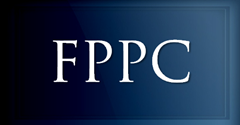 On December 17, 2015, the Fair Political Practices Commission amended its regulations related to agency provided tickets or passes. Currently, tickets and passes an agency provides to agency officials for entertainment, amusement, or recreational events are treated as gifts.
On December 17, 2015, the Fair Political Practices Commission amended its regulations related to agency provided tickets or passes. Currently, tickets and passes an agency provides to agency officials for entertainment, amusement, or recreational events are treated as gifts.
Regulation 18944.1 creates an exception from the statutory definition of “gift” for tickets or passes provided by an agency to certain agency officials under specified circumstances, allowing agency officials to use tickets and passes without violating the state’s gift law.
The proposed regulation was adopted with a vote of 5-0. It will go into effect 30 days after filing with the Secretary of State.
December 15, 2015 •
Washington Legislative Ethics Board Clarifies Free Meals for Legislators
The Legislative Ethics Board in Washington clarified its rule on free meals for legislators, which became effective January 1, 2015. At its December meeting, the board considered whether the rule should have more flexibility in its application in certain circumstances. […]
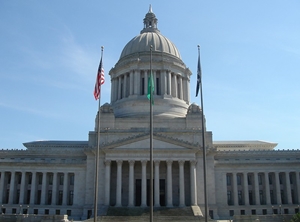 The Legislative Ethics Board in Washington clarified its rule on free meals for legislators, which became effective January 1, 2015. At its December meeting, the board considered whether the rule should have more flexibility in its application in certain circumstances.
The Legislative Ethics Board in Washington clarified its rule on free meals for legislators, which became effective January 1, 2015. At its December meeting, the board considered whether the rule should have more flexibility in its application in certain circumstances.
The board determined the following based on its discussion: annual, sit-down complimentary dinners to which all legislators are invited during a legislative session are not the type of dinners sought to be limited by the rule; when complimentary lunch is served at a city council meeting that is open to the public, such meal does not count toward the 12 free meals permitted under the rule; annual, sit down lunches hosted by business associations who employ lobbyists do not count against the 12 free meals permitted under the rule because such lunches are permissible under a separate exemption to the state gift ban; and potluck meals held as a result of a social relationship between a legislator and a lobbyist where the purpose of the meal is not to discuss legislative business do not count against the 12 free meals permitted under the rule.
Photo of the Washington State Capitol building by Nikopoley on Wikimedia Commons.
December 14, 2015 •
Broward County Commissioners Vote to Loosen Ethics Rules
Commissioners, by a count of 5-4, voted to loosen the strict gift limits imposed by the county ethics ordinance. Enacted in 2010, the ordinance created a no-gift rule, prohibiting city and county officials from accepting even a bottle of water […]
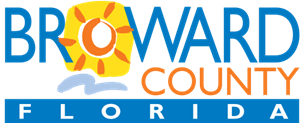 Commissioners, by a count of 5-4, voted to loosen the strict gift limits imposed by the county ethics ordinance. Enacted in 2010, the ordinance created a no-gift rule, prohibiting city and county officials from accepting even a bottle of water at an event.
Commissioners, by a count of 5-4, voted to loosen the strict gift limits imposed by the county ethics ordinance. Enacted in 2010, the ordinance created a no-gift rule, prohibiting city and county officials from accepting even a bottle of water at an event.
The new rules allow gifts, including non-alcoholic beverages, worth less than $5 and create an exception for gifts of sympathy. Other changes include the burden of reporting lobbying contact shifting away from the public official to the lobbyist and immediate family members may now act as government vendors.
Proponents lauded the changes, stating the zero-tolerance rules created a trap whereby government officials and employees could inadvertently violate the code.
December 4, 2015 •
Missouri Legislator Pre-files Ethics Reform Package
State Rep. Caleb Rowden pre-filed a four-point ethics reform package this week, hoping to increase accountability and transparency in government. The first change would prohibit gifts from lobbyists to any state or local elected officials as well as to their […]
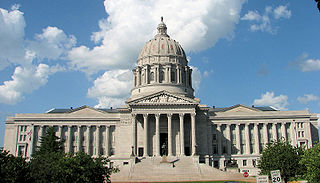 State Rep. Caleb Rowden pre-filed a four-point ethics reform package this week, hoping to increase accountability and transparency in government. The first change would prohibit gifts from lobbyists to any state or local elected officials as well as to their families and staff members.
State Rep. Caleb Rowden pre-filed a four-point ethics reform package this week, hoping to increase accountability and transparency in government. The first change would prohibit gifts from lobbyists to any state or local elected officials as well as to their families and staff members.
The second change would institute a revolving door provision for state legislators and statewide elected officials up for election during the presidential campaign cycle. Such individuals would be barred from lobbying for one session after leaving office beginning in 2016. Elected officials up for election during the midterm elections would be barred from lobbying for one session after leaving office beginning in 2018. After 2018, the revolving door rule would apply to all state elected officials.
A third change would prohibit individuals with open candidate committees from registering as lobbyists.
The final proposed change would require elected officials to publically disclose travel expenses paid for by a third party within 30 days of receipt or within 30 days of the trip, whichever is sooner.
Speaker of the House Todd Richardson has vowed to make ethics reform a top priority when the session begins in January.
Photo of the Missouri State Capitol by RebelAt on Wikimedia Commons.
October 5, 2015 •
Kentucky State Senator Files Suit Over Contribution Limits and Ban on Gifts from Lobbyists
State Sen. John Schickel filed a federal lawsuit against the Kentucky Registry of Election Finance and the Legislative Ethics Board aimed at eliminating the state’s campaign contribution limits. The suit claims the $1,000 limit to individual candidates and the ban […]
 State Sen. John Schickel filed a federal lawsuit against the Kentucky Registry of Election Finance and the Legislative Ethics Board aimed at eliminating the state’s campaign contribution limits. The suit claims the $1,000 limit to individual candidates and the ban on corporate contributions are violations of free speech.
State Sen. John Schickel filed a federal lawsuit against the Kentucky Registry of Election Finance and the Legislative Ethics Board aimed at eliminating the state’s campaign contribution limits. The suit claims the $1,000 limit to individual candidates and the ban on corporate contributions are violations of free speech.
The suit also asks the court to strike down ethics rules prohibiting lobbyists from making contributions, prohibiting employers of lobbyists from making contributions while the Legislature is in session, and banning gifts from lobbyists to legislators.
Kentucky House candidate David Watson and Pendleton County judge candidate Ken Moellman Jr. have joined the suit. The state agencies have until October 6 to respond.
September 25, 2015 •
Proposed Constitutional Amendment Increasing Campaign Finance Disclosure to Appear on California’s 2016 Ballot
A proposed constitutional amendment has been submitted to appear on the November 2016 ballot. This measure, titled The Voters’ Right to Know Act, would increase campaign finance disclosure requirements and eliminate gifts to public officials from certain entities. The act […]
 A proposed constitutional amendment has been submitted to appear on the November 2016 ballot.
A proposed constitutional amendment has been submitted to appear on the November 2016 ballot.
This measure, titled The Voters’ Right to Know Act, would increase campaign finance disclosure requirements and eliminate gifts to public officials from certain entities.
The act is designed to remove the “dark money” loopholes of nonprofit contributors by requiring anyone contributing $10,000 or more to be identified if that money winds up supporting a political effort. It also calls for updating and improving the electronic reporting system, clearer disclosure of contributors on television ads, and stronger penalties for violators.
The act also would ban gifts to public officials from lobbyists and lobbyist employers. The monetary limit on gifts to public officials from individuals would be lowered to $200 from the current amount of $460.
Backers of this proposition hope it will lead to greater transparency and encourage greater engagement from all voters.
September 11, 2015 •
California Bill Requiring Disclosure of Government Officials’ Travel Sent to Governor
On September 10, a bill requiring disclosure of funding for California government officials’ travel was sent by the Legislature to the Governor. Senate Bill 21 requires a nonprofit organization paying for the actual costs of travel for an elected state […]
 On September 10, a bill requiring disclosure of funding for California government officials’ travel was sent by the Legislature to the Governor. Senate Bill 21 requires a nonprofit organization paying for the actual costs of travel for an elected state officer or local elected officeholder to disclose the names of donors responsible for funding the payments. The legislation also requires a person who receives a gift of a travel payment from any source to report the travel destination on his or her statement of economic interests.
On September 10, a bill requiring disclosure of funding for California government officials’ travel was sent by the Legislature to the Governor. Senate Bill 21 requires a nonprofit organization paying for the actual costs of travel for an elected state officer or local elected officeholder to disclose the names of donors responsible for funding the payments. The legislation also requires a person who receives a gift of a travel payment from any source to report the travel destination on his or her statement of economic interests.
State and Federal Communications, Inc. provides research and consulting services for government relations professionals on lobbying laws, procurement lobbying laws, political contribution laws in the United States and Canada. Learn more by visiting stateandfed.com.


